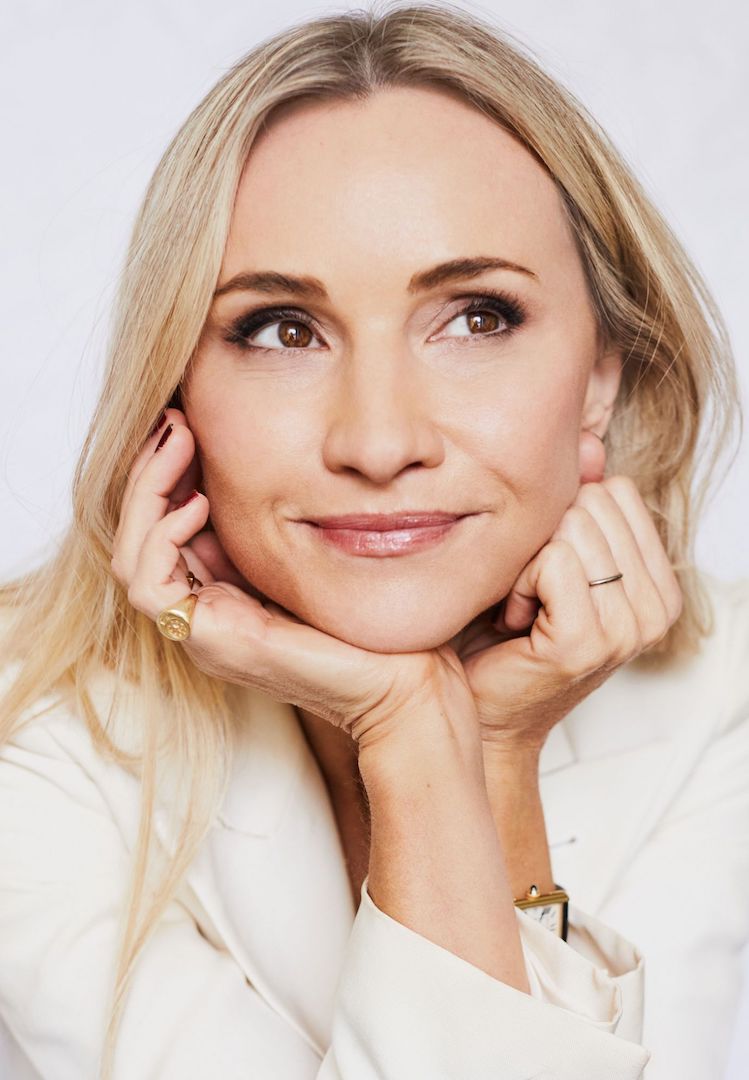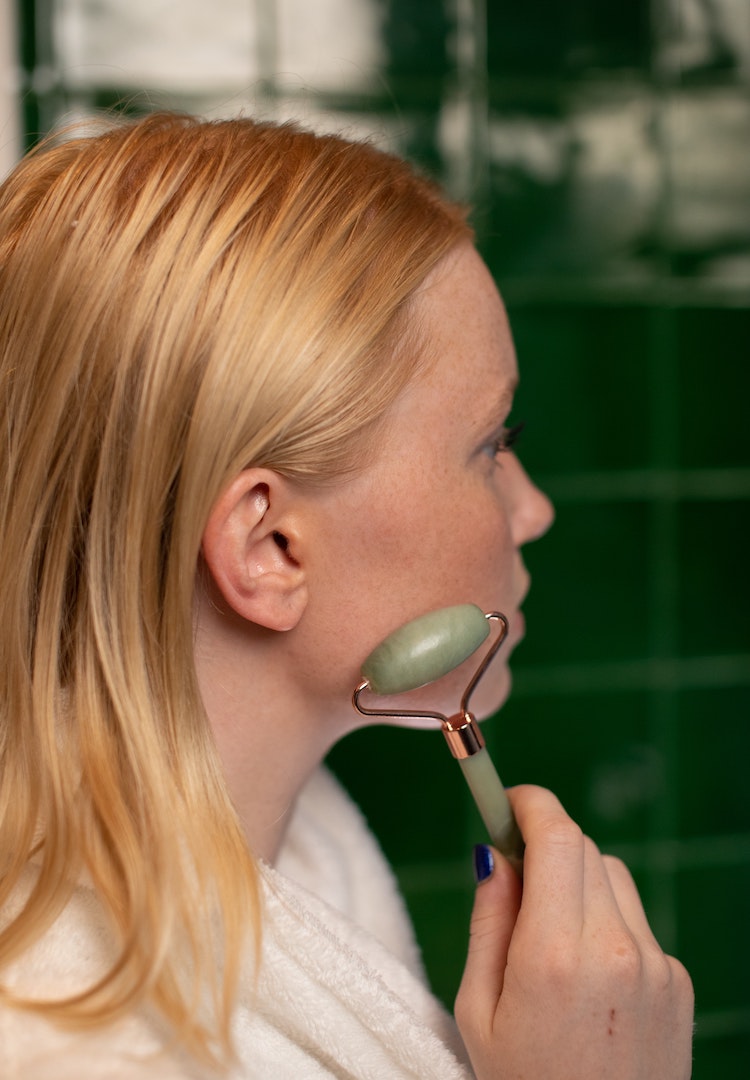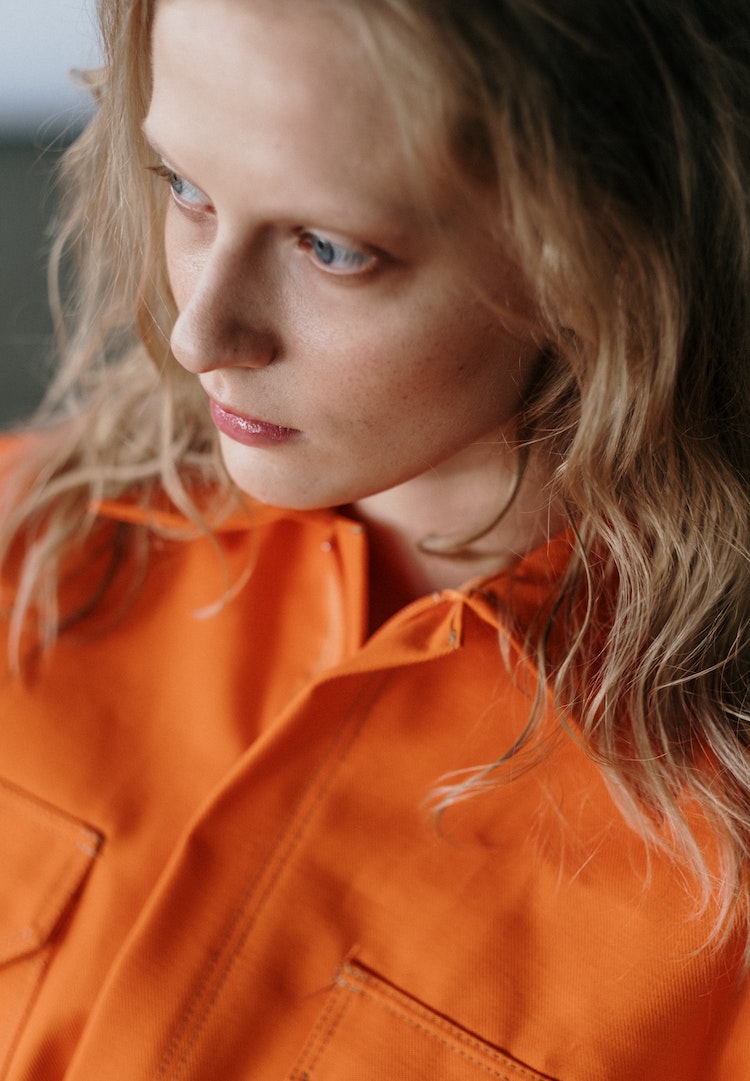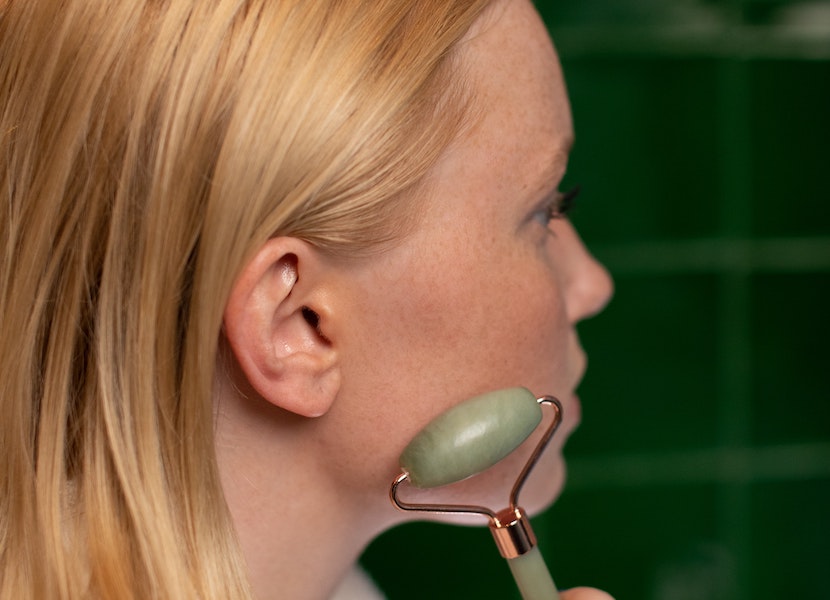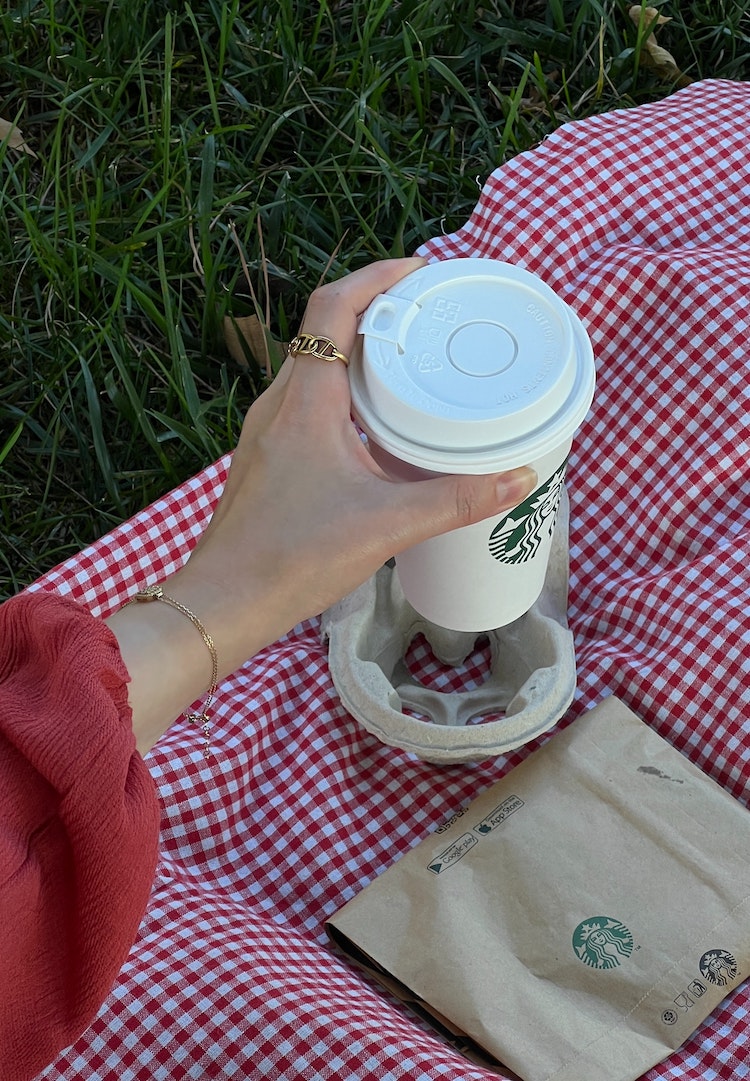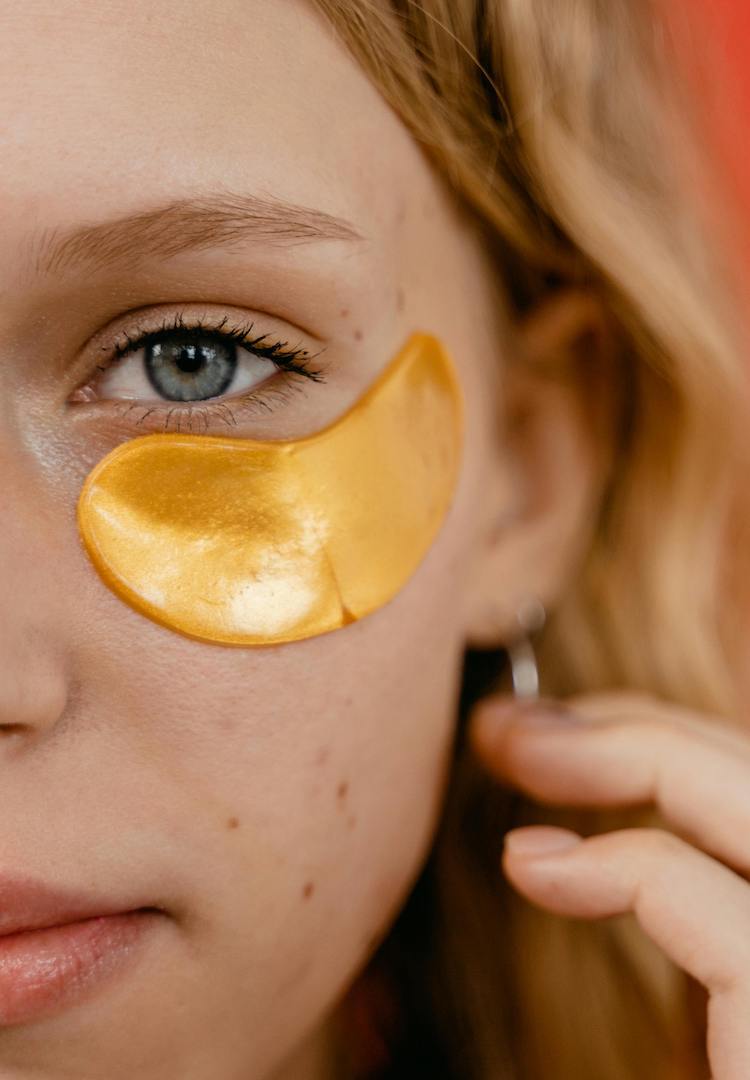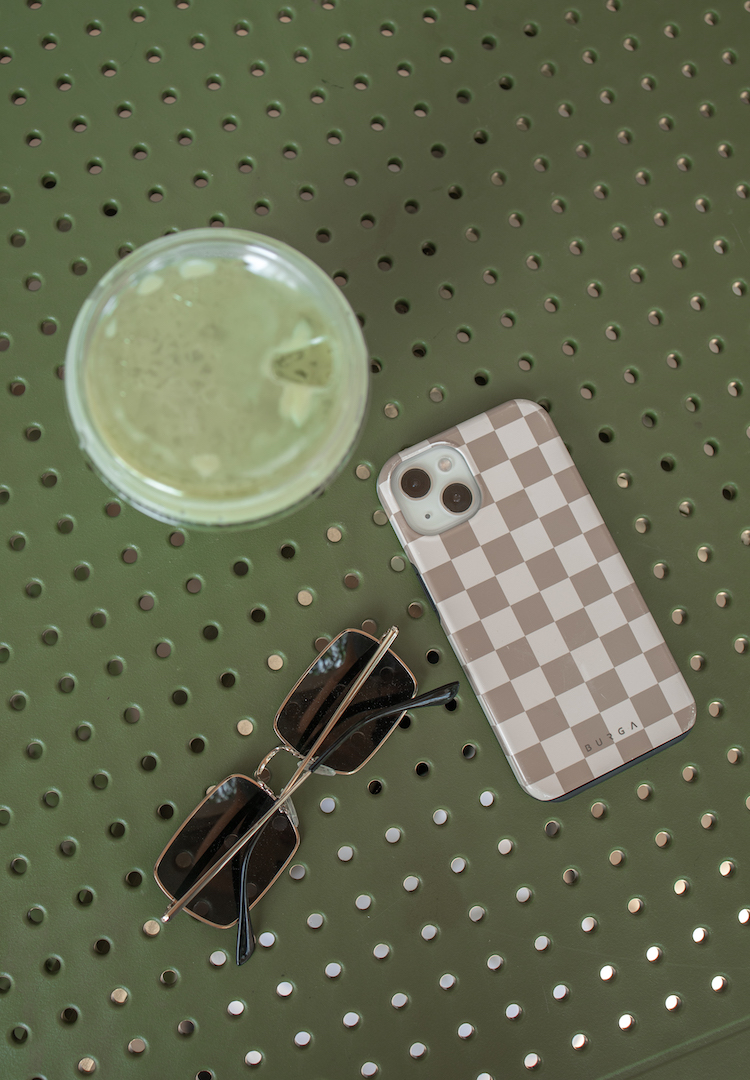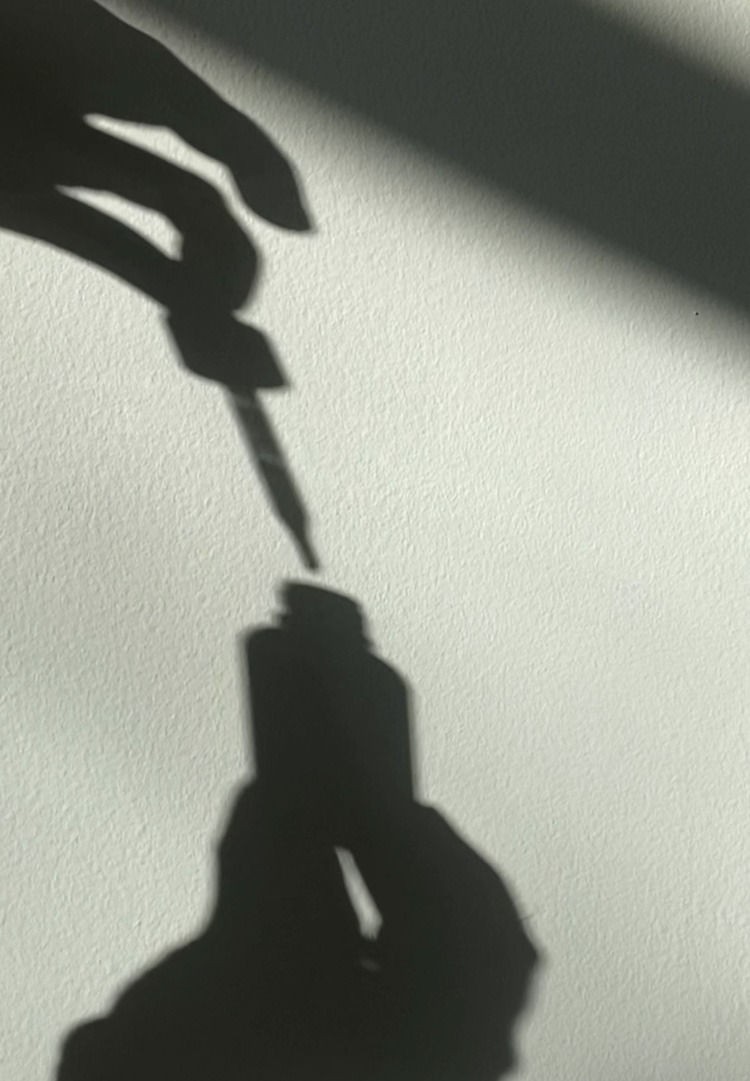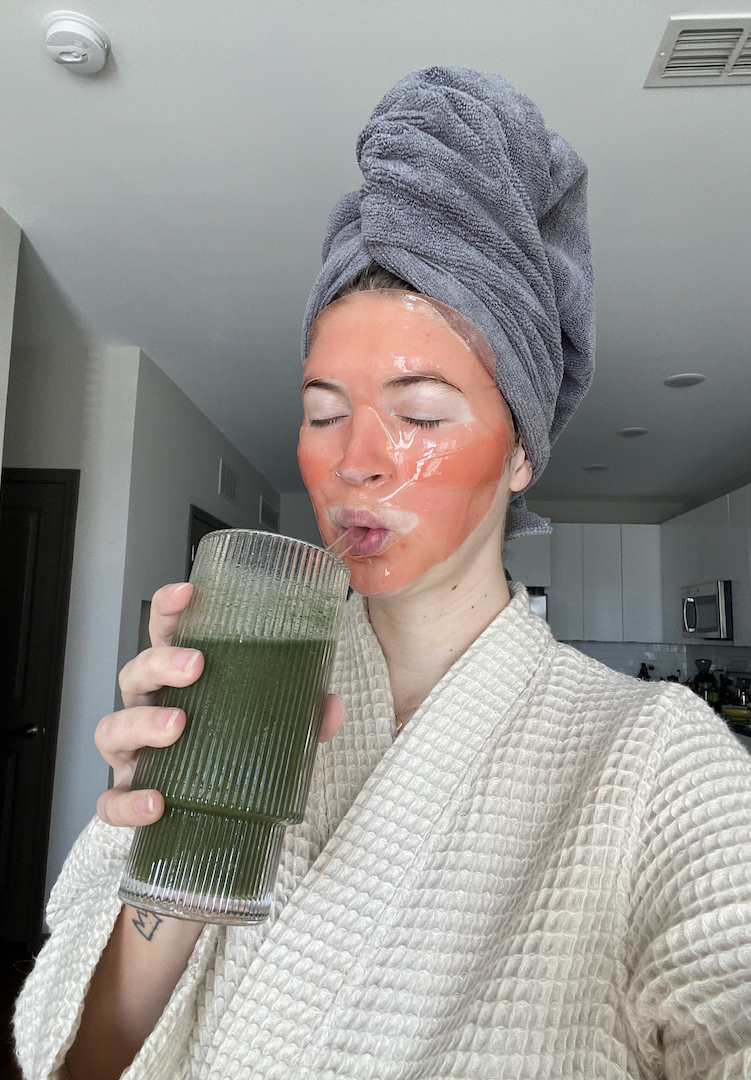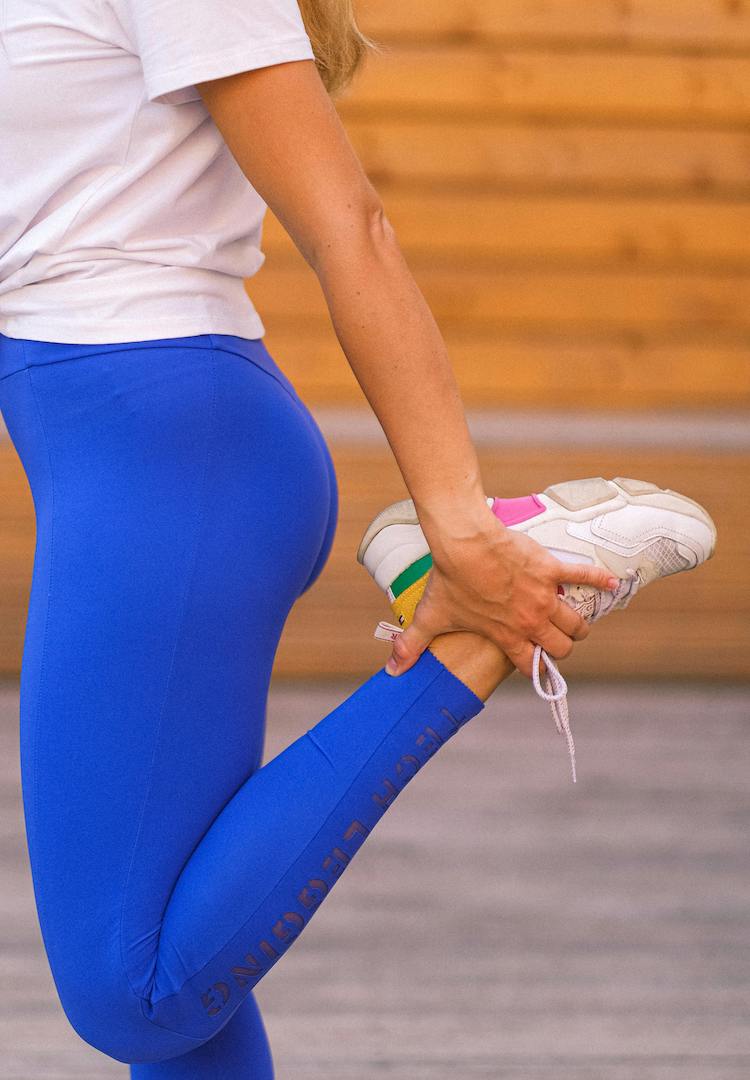Why is Gen Z so scared of ageing?
WORDS BY KITTY LLOYD
“From TikTok’s endless reminders that I’ll never be this hot again to the expectation I should be ‘shakin’ my ass on a yacht’, social media has succeeded in fusing FOMO with ageism.”
One of my most regretful teenage moments involves me catching the bus into the city, walking into Mecca and spending a soul-shattering $150 on Sunday Riley’s retinol serum. Sometimes when I’m low on funds, I think back to that money with envy and a healthy dose of cringe. Although reeking of privilege, this anecdote reveals my long-term relationship with anti-ageing products.
It’s one that started before I even could properly pronounce the ingredients these products contained. I’d been told by the perfect-skinned British influencers I followed that it was a “must-have”, “lifesaver” and, of course, a “holy grail”. That’s how I found myself spending 15 hours worth of my McDonald’s salary on a product I understood nothing about, other than that I apparently needed it (I absolutely did not).
We like nosy people. Don’t be shy, head to our Beauty section for more.
Even though I was a teenager, I could already hear a clock ticking in my periphery and feared my youth was slipping through my fingers; I’d even had awkward conversations in sterile doctor’s offices about my “biological clock”. As a teenager, I naturally wanted to be older and yearned for the freedom that could come with being an adult, but I most definitely did not want to actually be old.
Body-positive but ageing-negative
This fear of ageing is a toxic trait I’m trying to unlearn to this day. And while I might have done plenty of work to accept fatness and adult acne, I still find myself actively aware of my laugh lines and crow’s feet. I’ve outgrown pulling in shame at the fat on my stomach but I nightly pull my brows upwards and long for a tighter face. Even my daily sunscreen use is not motivated by a fear for my health but a fear of aged skin.
Ironically, just like most of Gen Z, I cherry-pick what aspects of ageing I idolise and what aspects I fear. I want to be a coastal grandmother in Nancy Meyers-inspired cream-toned cashmere and live a cosy, slow-paced life. But I’m also going to extreme lengths to keep my face looking plump and spend concerning amounts of time stressed that I’m wasting my twenties.
My fear of ageing sits in total contrast to my liberal views on tolerance and body acceptance. However, I find peace in knowing it’s deeply human. Immortality has captivated civilisations throughout history. We can find parables on eternal youth in great works of fiction from Greek mythology to Oscar Wilde and my favourite, 2003’s Freaky Friday.
Social media, however, has unleashed a new beast when it comes to our relationship with ageing. Our culture has always been youth-obsessed, but in the totally optics-based virtual world, youth, age and the way we grapple with both have only become more complex.
The anti-ageing industrial complex
My For You Page on TikTok always features young creators fitting their faces with some borderline dystopian products in the pursuit of young skin. Videos of facelift devices or at-home cryotherapy masks have gone viral as creators incorporate anti-ageing into their daily routines.
I think of that Death Becomes Her scene where Meryl Streep’s character sleeps in a shrine of anti-ageing products and gadgets, something that in its ’80s context probably seemed so obscene that it was comedic. But as I sleep on my back, with a silk pillowcase, wrinkle patches and an LED-light mask sitting in my Mecca cart, it hits too close to home.
From baby Botox to fox eye lifts and dry brushing, the anti-ageing industry is succeeding in locking down customers younger than ever before. And in a society that treats old people atrociously, we can’t chastise young people, particularly women, for making an active effort to avoid that fate.
But the normalisation of anti-ageing products and procedures only fuels the fire of our fear of growing old as we learn it’s something to try and minimise and manage. Social media has long been underscored by this type of toxic comparison culture which tends to be the thief of joy, just as our parents warned us.
FOMO gets existential
I can scroll for hours looking at people more conventionally attractive than me, with seemingly better lives, wardrobes and homes. As TikTok empowers all of us to become creators and share aspects of our daily lives, I no longer have the comfort of knowing I’m watching high-profile influencers, living that 1 per cent lifestyle. Instead, I voyeur into the lives of ordinary people just like me and let the comparison drive me to despair.
They work 40 hours a week but still work out, finish their books and see their friends. They saved their money wisely enough to enjoy a Euro summer. They live their youth exactly how I think one should.
From TikTok’s endless reminders that I’ll never be this hot again to the expectation I should be ‘shakin’ my ass on a yacht’, social media has succeeded in fusing FOMO with ageism. My scarcity mindset rears its ugly head as time constantly feels like it’s running out.
Social media has made a habit of catastrophising life after our twenties or thirties. It acts like your life comes to a screeching halt after a certain milestone birthday when every rational part of me knows that’s not true. Still, we like to categorise some behaviours as acceptable for certain age groups and tacky for others. It’s not just the fear I’m wasting my youth, it’s the worry that once it’s gone I’ll be shamed if I try and relive it.
Acting my age
Beloved content creator Alix Earle faces this backlash all the time as audiences love to shame her for her clubbing habit. She’s often described as being “too old” to be going out and partying despite being 22 and fully entitled to her own choices.
Many of us feel pressured to follow a prescribed life path that’s been bookmarked by age. We’ve set certain ages for when we’re meant to be doing this or that and decided when we’ll outgrow certain things and grow into others. Social media in theory gives us the power to totally unlearn these prescribed timelines and find ways of living that aren’t so rigid and tied to age. Instead, we’ve ended up internalising much of the ageism from times gone by and fusing it with comparison culture.
Gen Z’s troubling relationship with age isn’t symptomatic of generational ageism, it’s a by-product of their coming of age happening in a social media and youth-obsessed world. Social media’s unique ability to prey on our insecurities has managed to convert this once very human obsession into a source of deep anxiety, worry and shame.
Thankfully, I no longer spend such obscene amounts on skincare these days. But the absurdity of a teenager shelling out so much money on a product they were years away from ever needing (no teenager needs to use retinol!) provides me with a perfect reminder of how absurd and out of touch our modern relationship with ageing has become.
For more on Gen Z’s ageism issues, try this.

